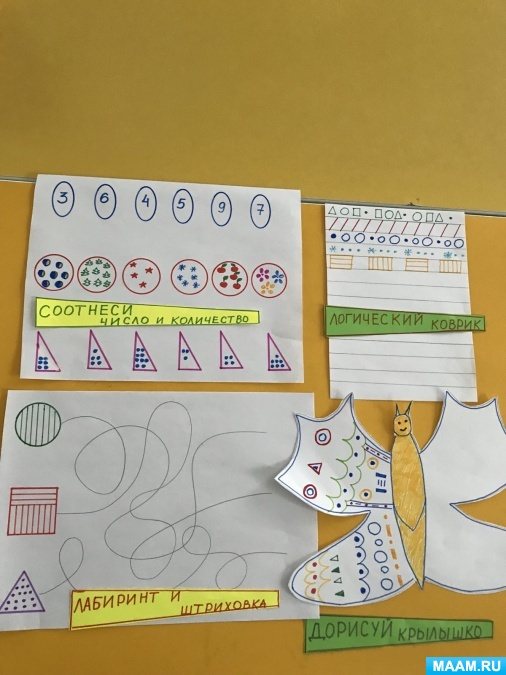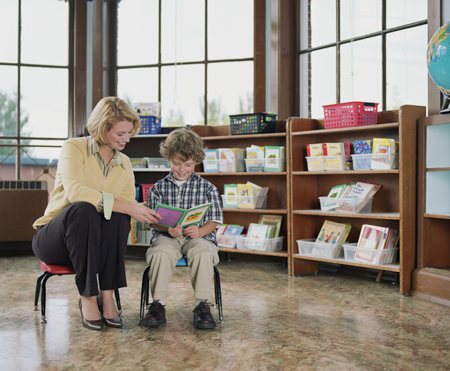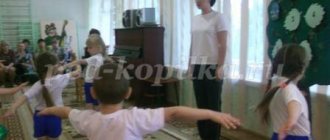Kindergarten: does a hyperactive child need it?
It is highly desirable that a hyperdynamic preschooler attend some preschool institution. The home for a hyperdynamic child is cramped; he needs communication and other varied experiences. He is sociable, easily gets along with children and adults, active, non-offensive and enterprising. It is created for the team. Keeping it at home after three years unless absolutely necessary is completely inappropriate.
Sometimes (since, as we know, hyperdynamic syndrome is often not the only clinical manifestation of MMD - minimal brain dysfunction) parents reason like this:
“He’s so weak and nervous.” He had diathesis and stuttered, and he still pees sometimes. All sort of twitchy. Once he plays with someone and gets mad, you won’t be able to calm him down until the evening. If you send him to kindergarten, it will be even worse. It’s better for him to sit at home until school, get stronger, and then immediately go to first grade.
This reasoning is fundamentally incorrect. The fact is that a child entering any mass child care institution experiences three types of stress.
The first is immunological stress. Simply put, as many children as there are in the group (class, school) immediately begin to sneeze and cough on it. If the child's immune system is not very strong (and in children with MMD this is most often the case), it takes some time for it to adapt to the situation. This is why most children who first enter kindergarten or school begin to regularly suffer from colds. Normally, after about six months the situation levels out - the immune system has adapted to the available antigens. If a child is taken from kindergarten after the first or second illness, and sent back the next year, everything repeats all over again.
The second stress is social stress. A child who is used to being the center of attention in the family, the object of care for adults, suddenly finds himself in a situation where his wishes are not very likely to be taken into account, where everything is done on command, and other children have exactly the same rights as he himself. . If in the family where the child is growing up there are other children, his brothers and sisters, then all this passes almost painlessly. But if the child is the only one, then he faces serious problems.
In addition, only “in society” can a system of social roles be built. Who am I - a leader or a follower? What should I do if I want to make friends with this boy? What should I do if this girl took my favorite toy? How to attract the attention of other children? How, on the contrary, can you stay alone and make sure they don’t pester you? All these issues are resolved only in the practice of daily social life and nothing else.
A very socially interesting place is a kindergarten toilet, a smaller copy of a school toilet. Here very important issues are resolved, dates are arranged, relationships are sorted out. For a boy who has not gone through the “school” of the kindergarten toilet, the school toilet itself turns out to be an unexpected and often very unpleasant discovery.
The third stress is the actual school, educational stress that awaits any first-grader. Sit in one place for 45 minutes, answer only on command (even if you know the answer better than others), don’t run during recess, watch the teacher all the time, keep up with assignments, and think, think, think all the time...
So, parents who do not send their child to kindergarten, but wait at home until he “gets stronger,” doom the child to a very difficult situation when all three stresses (remember: immunological, social and educational) fall on him at the same time. And then the child either begins to get desperately sick, or one morning declares: “I won’t go to this school of yours anymore!” So what should parents do then?
So it’s better to immediately make sure that all these stresses are separated in space and time. If a child was sent to kindergarten and had his share of colds at the age of five (the immune system has adapted to constant “sneezing”), the social status is determined at the age of six (I am not a leader, but I can successfully entertain those around me, I cannot repel a direct attack , but I can easily redirect the aggression directed at me - yes, yes, don’t be surprised, it’s precisely this level of complexity that six-year-old children solve social problems), then at seven years old such a child will calmly go to school and quite successfully survive the educational situation itself.
Preparatory group. Senior preschool age. Children 6-7 years old
Getting the kids ready for school! Tasks and exercises for the development of logical thinking in children of senior preschool age

Program for preparing children 5–7 years old for school Program for preparing children 5–7 years old for school based on the author’s program “Continuity”
Fedosova N. A. and others. Explanatory note Regulatory acts and educational and methodological documents on the basis of which the work program was developed: 1. Law of December 29, 2012 No. 273-FZ “On ...
How to choose a school and teacher?
This can be done in different ways. I’ll take the liberty of offering one of the most uncommon, but very effective.
You go to the school(s) where you plan to send your child and watch the fourth graders come out into the lobby after school ends. Among the children who ran out, you notice three or four disheveled, agile as mercury, with an open briefcase and hands smeared with ink. If at the same time they scream like crazy and speak, choking and dancing on the spot, then you can be sure that this is the hyperdynamic contingent of this class. Next, you notice which of the children you are interested in meet. Approach your mother or grandmother and say something like the following:
- Hello! Excuse me, please, my son is entering first grade next year. Perhaps it will end up with your teacher. In some ways he resembles your boy (girl). I'm very worried about him. Tell me, how did your relationship with the teacher develop these three years?
The following are possible options. If you are told a tragic story about the struggle for academic performance, notebooks and diaries dotted with red, standing in corners and scolding at parent-teacher meetings, then, regardless of the “official” reputation of this teacher, you should seriously think about it before giving your hyperdynamic child to her class.
If they tell you that there were a lot of problems, but the teacher somehow managed to find an approach to the child, always found something to praise him for, and as a result, he now makes fewer mistakes, and has become more attentive to his studies, and I always enjoy going to school—you can rest assured that this is exactly what you need.







